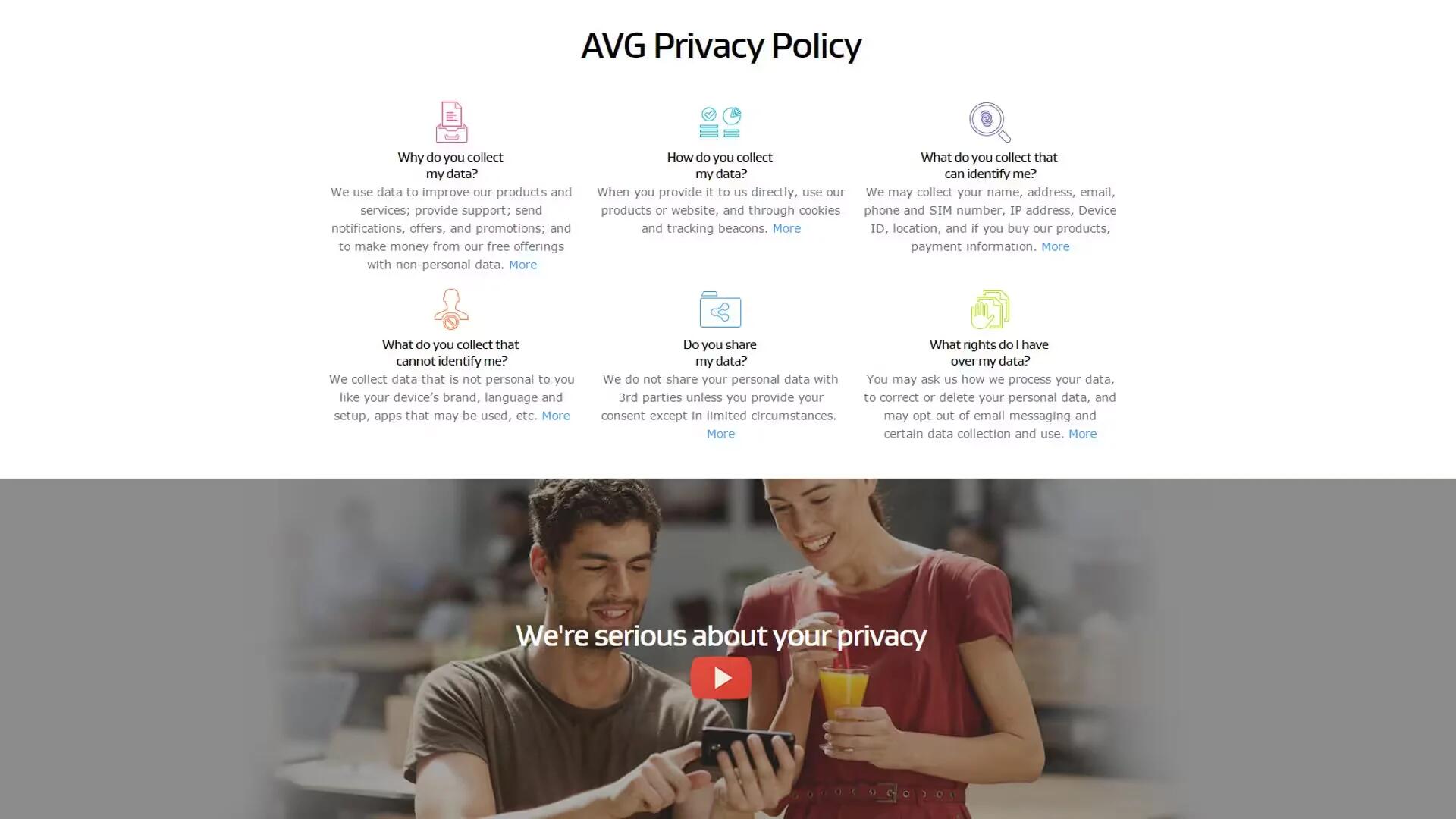AVG has updated its privacy policy of its free antivirus software saying that it can make money by selling your non-personal data to advertisers. These non-personal data includes your browsing and search history, your device’s brand, language and apps in use, among other things. The new privacy policy comes into effect on 15 October 2015.
The company says that the data it sell to advertisers will not contain any personally identifiable information , and the data that it does collect is anonymized and stored without anything that can link it back to you.
According to the new privacy policy, AVG can collect data you yourself provide and it can use cookies to track your searchers and your activities on websites, apps and other products. It can then use those details to “build anonymous data profiles” or create statistical information, which it can then sell.
According to Alexander Hanff, a security expert and chief executive of Think Privacy, the new privacy policy places the free antivirus “squarely into the category of spyware“. Hanff urged people using AVG’s free antivirus to “immediately uninstall the product and find an alternative“.
Antivirus software runs on our devices with elevated privileges so it can detect and block malware, adware, spyware and other threats.
It is utterly unethical to [the] highest degree and a complete and total abuse of the trust we give our security software.
A spokesperson from the company told Wired UK that AVG updated the language to be more transparent and make sure people know that it can make money off its free products using their information.
Those users who do not want us to use non-personal data in this way will be able to turn it off, without any decrease in the functionality our apps will provide.
While AVG has not utilised data models to date, we may, in the future, provided that it is anonymous, non-personal data, and we are confident that our users have sufficient information and control to make an informed choice.
AVG has also released an video explaining the changes in their privacy policy.
https://www.youtube.com/watch?v=JTwMWKBtCwA
AVG says users can opt out of data collection if they want but by default, the free antivirus software will consider that you already agree to the data collection. The new privacy policy comes into effect on 15 October 2015.
AVG is not the only company that is collecting data. Avast, another free antivirus software also claims to collect non-personal information and sell it to advertisers.
VIA: Wired UK
Source: AVG
